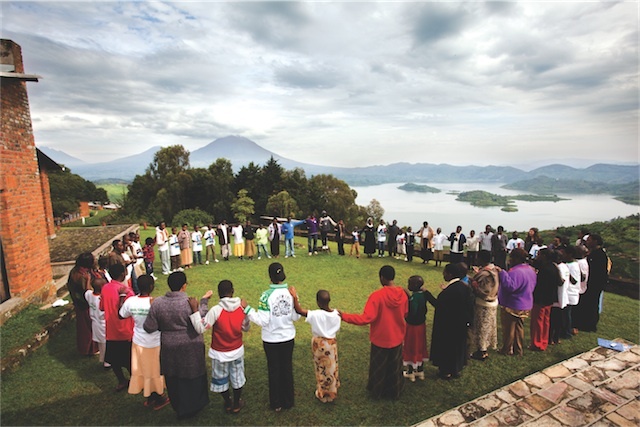This story was originally published on International AIDS Society’s blog.
An HIV diagnosis is difficult no matter how old you are, but for the 2.1 million adolescents who are living with HIV around the world, the news can be especially devastating. I know, because I am one of those young people.
When I was 10 years old, I found a letter my mother had written that I was never supposed to see. In it, she explained that she was living with HIV along with my father, my younger sister, and me. I was shocked, but also relieved to finally have an explanation for why my family seemed to suffer from so many health problems. Like almost all of the children and adolescents who are living with HIV today, I contracted the virus from my mother. And I had many of the same questions that other young people struggle with when they first discover they are living with HIV:
- How will my friends and peers react when they learn about my HIV status?
- Will I ever be able to date or get married? Or have a family?
- Are there other young people out there like me who I can talk to?
My parents kept our family’s HIV status a secret because they wanted to protect my sister and me from the stigma and discrimination that people living with HIV often face, especially in Uganda. However, once I learned my status, I still decided to seek treatment, even knowing that just taking HIV medications could expose me to stigma and discrimination.
But through my treatment, I was also introduced to the Elizabeth Glaser Pediatric AIDS Foundation’s Ariel Club—a psycho-social support group and camp for children and teens who are infected with or affected by HIV.
The first time I went to an Ariel Camp was one of the most memorable moments of my life. After meeting so many children who were also living with HIV from all over Uganda, I knew that I was no longer alone. I finally found the sense of belonging and understanding that I had been searching for since I learned my status.
Ariel Camp was like an entirely different world. We were all one big family who had created a safe place to share our stories and learn from each other. At camp, we had the best life we could imagine—there was food, games, friends, and loving mentors. We never wanted it to end.
My own feelings about my HIV status transformed—I didn’t have to let HIV define me or my future. I learned that if I took my medications, I could live a long, healthy life and achieve any and all of my dreams. I decided to become an advocate and peer counselor in order to help other young people realize that HIV is not a death sentence. Every single young person deserves the same chance at a happy, healthy, and full life regardless of their HIV status.
As an advocate, I have shared my personal story hundreds of times, but I will never forget the first time that I spoke to a large crowd during a World AIDS Day event in Uganda almost 10 years ago. Until then, I had only really shared my story with other counselors and children in my camp. But after my speech, I received a thunderous applause and many people, including children, thanked me for giving them hope and encouragement. That’s when I stopped being afraid to speak out and realized that my story had the power to change the world.
Today, I use my voice and my story to inspire other young people around the world to be fearless and to help end the AIDS epidemic. In addition to my role as an Ambassador for the Elizabeth Glaser Pediatric AIDS Foundation, I am also the co-founder of Young Generation Alive, a youth advocacy group in Uganda. We visit schools and community events to educate young people about HIV and manage support groups for children and adolescents who are living with HIV.
I am also honoured to represent Uganda this June as a 2016 Queen’s Young Leader award recipient—an honour given to young people making a difference around the world from Queen Elizabeth II of the United Kingdom.
The work I am doing now is just the beginning for me. I plan to become an international advocate for the global effort to end AIDS in children. We will only stop the fear and stigma associated with HIV by speaking out and giving a voice to the millions of young people around the world who are living with the virus.




